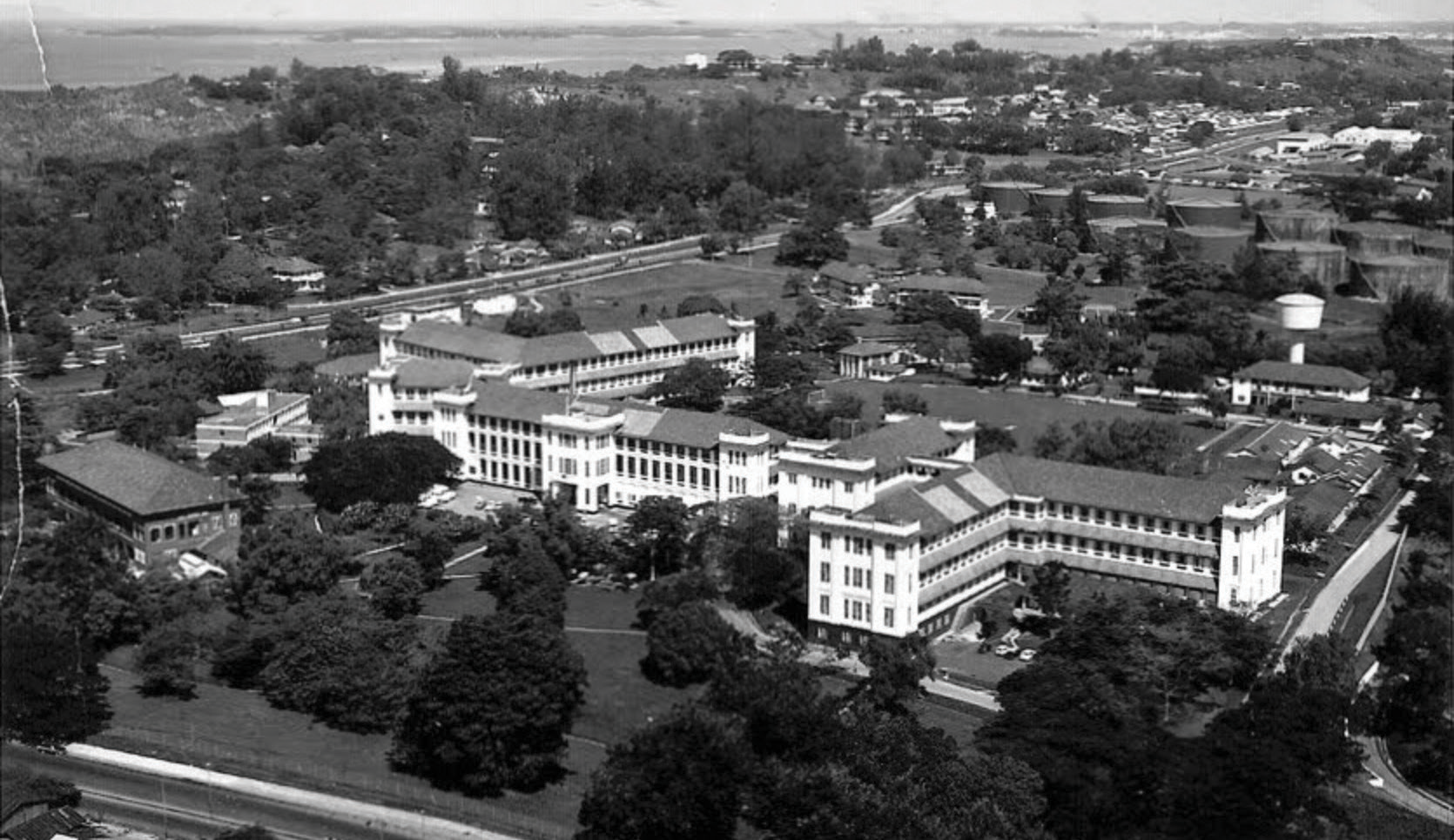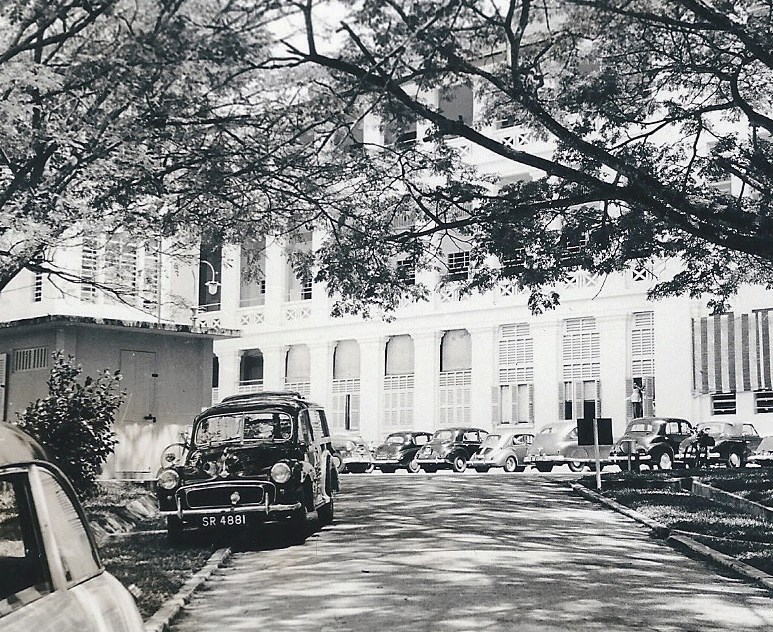Chapter Four: Pioneers of Tomorrow
Part One
Handover from the British to Singapore’s Ministry of Health
A Hospital for a Dollar
For $1—the price of a small bag of potato chips today—a sweeping 32-acre colonial-era complex in the west of Singapore was handed over to the Republic in 1971. It was a token sum for the transfer of a British-built military hospital at 378 Alexandra Road.
The British hospital had roots going back to 1938, and a number of accolades and firsts to its name. Record books, for instance, described it as the “most modern hospital of its kind in Southeast Asia” and the “largest British army hospital in the world” with an “impressive range of facilities.”
The complex served as the main healthcare facility in the region for the British army, and, at its peak, catered to 900 uniformed and civilian patients as well as their families. Its handover was one of the last few items on the British Administration’s long to-do list as it prepared to exit Singapore in 1971, concluding 152 years on the island. In 1968, the British announced plans to disengage, and withdraw from, Southeast Asia. Singapore’s leaders were initially gravely concerned that the island city would be unable to cope economically. They also fretted about its defence capability.
Much of this was circumvented via a series of rapid industrialisation programmes and military partnerships with other countries. By 1971, Singapore was ready to stand alone and in the gap. It was also ready to inherit British military infrastructure, such as its naval base, dockyard, three military airfields, workshops, and supply depots.
An isometric view of the hospital’s campus, with Ayer Rajah Road in the background. The Normanton oil tanks can also be seen on the right.
The transfer of the hospital complex was welcomed enthusiastically by the local press. In the lead up to the ceremony, news articles described it as an “inheritance” for Singapore. A May 1971 report in New Nation noted: “By taking over Alexandra Hospital, Singapore receives a ready-made general hospital of 400 beds capable of expansion without too much difficulty to take in another 100.”
Others, such as the Singapore Medical Association, also found it propitious. In its June 1971 newsletter, the association wrote that the handover meant Singapore was coming into “possession of a 400-bed acute care hospital… at one stroke.” This, they said, could relieve the crush at the Outram Road General Hospital (present-day Singapore General Hospital).
There was much reason for the hype. Singapore was a poor, developing country at the time. Its main hospital, the Singapore General Hospital (SGH), was housed in an old building. Visually, the colonial complex looked far more attractive. The military hospital’s last commanding officer, Colonel G. L. Humphreys, was also reported to have said that an “enormous quantity” of drugs would be handed over and “that on the whole, we are leaving enough behind to run a useful hospital.”
The hospital retained its general look and feel, well until its next change of administration at the turn of the 21st century.
Alexandra Hospital’s main gate, guarded by Gurkha personnel.
In fact, the new Singaporean team charged with helming the hospital was purportedly thrilled and looked forward to unboxing left-behind medical supplies, which they likened to “goodies, gems, and treasures.” These medical supplies were quickly consumed in one to two years.
On 11 September 1971, following months of detailed planning, representatives from Singapore’s Ministry of Health (MOH) were presented with a framed dollar note by members of the British Military Administration as part of official ceremonial proceedings. The highly anticipated event was held in a room of a now demolished building, the site having been taken over by the present-day Administrative Office.
Unfortunately, the reality on the ground was a little different from what the Singaporean team had expected and envisioned. They discovered very quickly that equipment left behind — particularly for surgeries and the like — was inadequate, outdated, and, in some cases, in dire need of replacement. This scuppered plans to open the complex right off the bat.


